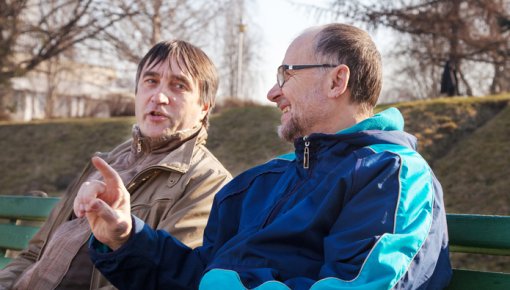Bjarkoy RO, Gjengedal E, Wahl AK. Care in the context of the complexity of psoriasis. Clin Nurs Res 2011; 20(1): 47-63.
Bundy C, Borthwick M, McAteer H, Cordingley L, Howells L, Bristow P et al. Psoriasis: snapshots of the unspoken: using novel methods to explore patients'personal models of psoriasis and the impact on well-being. Br J Dermatol 2014; 171(4): 825-831.
Chisholm A, Pearce CJ, Chinoy H, Warren RB, Bundy C. Distress, misperceptions, poor coping and suicidal ideation in psoriatic arthritis: a qualitative study. Rheumatology 2016; March 08, 2016.
Globe D, Bayliss MS, Harrison DJ. The impact of itch symptoms in psoriasis: results from physician interviews and patient focus groups. Health Qual Life Outcomes 2009; 7: 62.
Howard S, Ahmed H, Cream P. The Lived Experience of Psoriasis Patients: A Phenomenological Study. Dermatological Nursing 2012; 11(4): 48-55 48p.
Khoury LR, Danielsen PL, Skiveren J. Body image altered by psoriasis. A study based on individual interviews and a model for body image. J Dermatolog Treat 2014; 25(1): 2-7.
Lebwohl M, Swensen AR, Nyirady J, Kim E, Gwaltney CJ, Strober BE. The Psoriasis Symptom Diary: development and content validity of a novel patient-reported outcome instrument. Int J Dermatol 2014; 53(6): 714-722.
Magin P, Adams J, Heading G, Pond D, Smith W. The psychological sequelae of psoriasis: results of a qualitative study. Psychol Health Med 2009; 14(2): 150-161.
Magin P, Heading G, Adams J, Pond D. Sex and the skin: a qualitative study of patients with acne, psoriasis and atopic eczema. Psychol Health Med 2010; 15(4): 454-462.
Moverley AR, Vinall-Collier KA, Helliwell PS. It's not just the joints, it's the whole thing: qualitative analysis of patients' experience of flare in psoriatic arthritis. Rheumatology 2015; 54(8): 1448-1453.
IQWiG health information is written with the aim of helping people understand the advantages and disadvantages of the main treatment options and health care services.
Because IQWiG is a German institute, some of the information provided here is specific to the German health care system. The suitability of any of the described options in an individual case can be determined by talking to a doctor. informedhealth.org can provide support for talks with doctors and other medical professionals, but cannot replace them. We do not offer individual consultations.
Our information is based on the results of good-quality studies. It is written by a team of health care professionals, scientists and editors, and reviewed by external experts. You can find a detailed description of how our health information is produced and updated in our methods.

